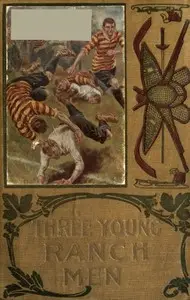"The Seven Plays in English Verse" by Sophocles, translated by Lewis Campbell, is a collection of ancient Greek tragedies written in the 5th century BC. This compilation presents the renowned works of Sophocles, which include complex themes of fate, morality, and human nature, articulated through a variety of tragic characters. The opening chapters introduce the powerful themes of divine law versus human law and the moral dilemmas faced by the characters, particularly through the actions of figures like Antigone. The beginning of "The Seven Plays in English Verse" sets the stage for the iconic play "Antigone." In this opening segment, we meet Antigone and Ismene, the two daughters of Oedipus, who are grieving the loss of their brothers, Eteocles and Polynices. Creon, the new king of Thebes, has ordered that Eteocles be honored with a burial while forbidding Polynices' burial, declaring him a traitor. Antigone, driven by familial loyalty and divine justice, resolves to defy Creon's edict and gives Polynices a proper burial, thereby invoking the conflict between state law and moral duty. As the narrative unfolds, it hints at themes of pride, obedience, and the tragic outcomes that arise from stubbornness and defiance against fate. (This is an automatically generated summary.)

The Seven Plays in English Verse
By Sophocles
"The Seven Plays in English Verse" by Sophocles, translated by Lewis Campbell, is a collection of ancient Greek tragedies written in the 5th century B...
Sophocles was an ancient Greek tragedian, known as one of three from whom at least one play has survived in full. His first plays were written later than, or contemporary with, those of Aeschylus; and earlier than, or contemporary with, those of Euripides. Sophocles wrote more than 120 plays, but only seven have survived in a complete form: Ajax, Antigone, Women of Trachis, Oedipus Rex, Electra, Philoctetes, and Oedipus at Colonus. For almost fifty years, Sophocles was the most celebrated playwright in the dramatic competitions of the city-state of Athens which took place during the religious festivals of the Lenaea and the Dionysia. He competed in thirty competitions, won twenty-four, and was never judged lower than second place. Aeschylus won thirteen competitions, and was sometimes defeated by Sophocles; Euripides won four.










